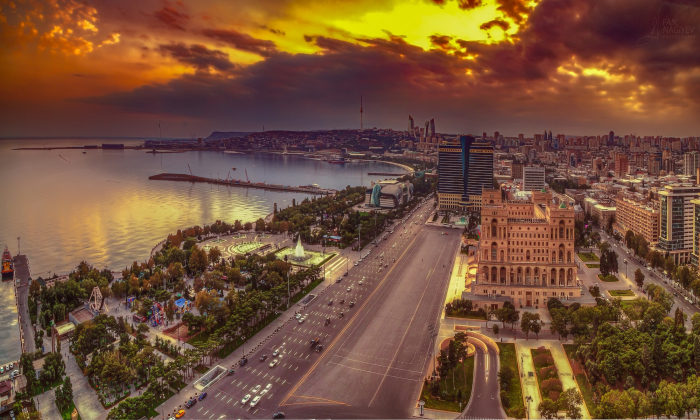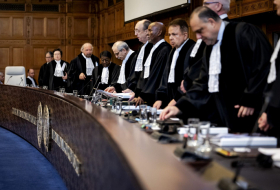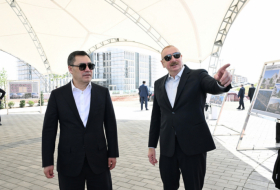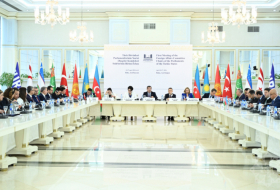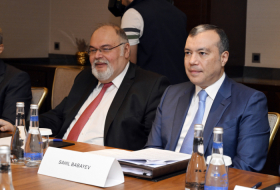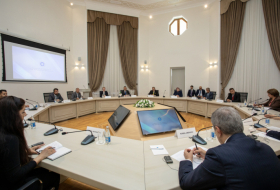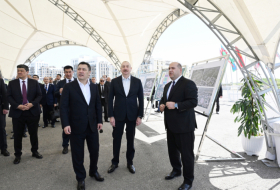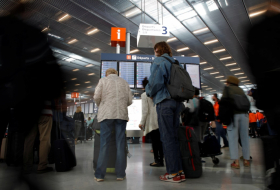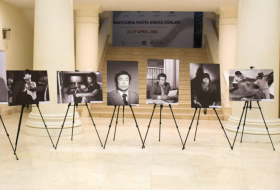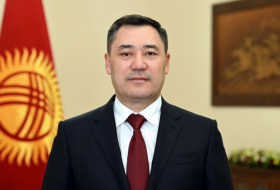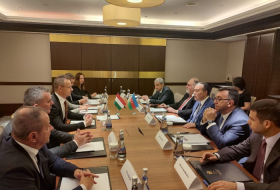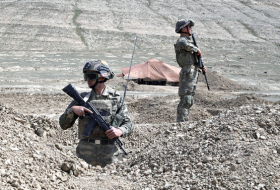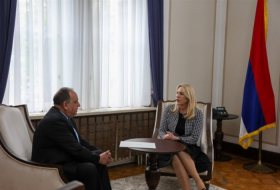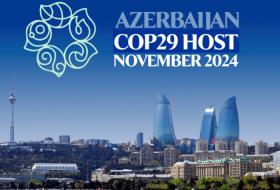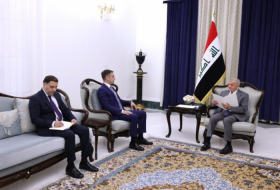One of the first victories of Azerbaijan in the economic sector was brought about by the signing of “contract of the century”. New economic reforms established a favourable environment for investment and led to socio-economic development within the country. Similarly, comprehensive institutional changes allowed the government to prevent hyperinflation and regulate the macroeconomic balance. Soon, the dynamics of economic growth in Azerbaijan shifted. Through the extraction and export of natural resources, the country saw an economic boom. By 2011 Azerbaijan’s strategic country reserves reached up to 41.5 billion US dollars.
The transition was not limited to the economic sector; substantial efforts were made for the effective resolution of social problems. A new social security system was established in accordance with international standards. The quality of medical services was improved manifolds and all health-based institutions were given up to date equipment and hardware. Likewise, the educational infrastructure was also strengthened by increasing budget allocation. This allowed the government to modernize the educational system, renew the syllabus, and integrate the Azerbaijan education into the European education system. Moreover, computerizing education was one of the fundamental steps that took the education system of Azerbaijan to the next level.
Lastly, the chaos brought about due to the political transition within the country was addressed through the formation of a transparent democratic society. Political pluralism served as the basis of public progress and political parties were allowed to play a significant role in running the country’s political system and growth of the civil society. This new democratic system revolutionized the structure of the society allowing citizens to have a much active role in the politics of Azerbaijan.
The successful transition in almost all sectors of Azerbaijan was the result of well-thought consistent state policy, strong leadership, and strategic implementation. The policymakers successfully deciphered the interconnectedness of all sectors namely: economy, health, education, and politics. Understanding this interplay between different sectors helped Heydar Aliyev devise a policy that would help solidify the foundation of the state and this was to be done by inducing economic progress. In other words, once a strong and sound economy was established, it allowed the government to strengthen other state departments through the reallocation of budgets, thus boosting the overall progress of Azerbaijan. Soon enough the country was out of turmoil and on its way to becoming one of the most influential states in the South Caucasus.
Need for a New Vision
The socio-economic reforms introduced by Heydar Aliyev successfully mended various departments within the state. Once the foundation was solidified, the policymakers had a chance to dig deeper in order to resolve certain impediments that were still prevalent within the country and could hamper its progress in the future. Thus, President Ilham Aliyev soon signed a decree to approve a development concept known as “Azerbaijan 2020: A look into the future”. This concept was developed for two main reasons: to further strengthen all sectors of the country and to keep up with the rapid advancements in the world.
In the current situation, the government faces new challenges that can only be addressed through the formulation of up to date policies and this development concept provides exactly that. Moreover, now the aim of the government is to not only focus on inward but outward reforms as well that would allow it to keep up with the volant spread of information and communication technologies. In addition, globalization has been affecting the socio-economic life of most countries and Azerbaijan is no exception. Thus, it needs an effectual state policy that will allow it to adapt to these changes. The Azerbaijan vision 2020 has successfully understood the challenges and provides a comprehensive outlook on how to counter them.
The principle strategic view of the concept is to avail all the currently available opportunities and resources to attain sustainable economic growth, significant social welfare, the supremacy of law, effectual state management and the same time ensure human rights, freedom and development of civil society[i]. The document was approved on the basis that by 2020, Azerbaijan would a competitive state that is economically and politically developed. The government wishes to increase employment, decrease poverty, develop human capital, and ensure that all citizens have access to health care and that the environment is protected. The development concept has clearly highlighted the principle agendas that Azerbaijan needs to invest its time and money into; it provides a vision of how the country should be by the end of 2020.
Increasing the Competitive Power of the Economy
One of the first agendas of the concept is to ensure that the economic system of Azerbaijan is effective enough that it can compete globally. Statistics show that a state’s economic growth can increase manifolds through state regulations within the market and continuous improvement of these regulations in accordance with the market requirements. Thus, Azerbaijan must strengthen the states regulatory and administrative functions in order to improve the business environment, maintain macroeconomic stability and at the same time be able to carry out large infrastructure projects and ensure free competition. In the light of the current pandemic, the government has created four working groups that are to build special proposals to curtail the negative effects of coronavirus on the country’s economy, employment issues, macroeconomic stability and business entities thus ensuring that the country does not lose sight of the 2020 vision.
The document further states that an appropriate monetary policy will be conducted with the target to keep inflation in check and guarantee the stability of the financial sector. The development of fiscal disciple will be given special attention to increasing the efficiency of expenses and the efficiency of fund distribution. Similarly, passive taxation policies are to be transformed into active taxation policies and the tax rates are to be improved to create an environment that is favourable for business activity. According to the 2019 World Bank Doing Business report, Azerbaijan reached the 24th position up from the 57th position in 2018. This brought the country one step closer to achieving its 2020 vision.
Furthermore, efforts are to be made by the Azerbaijani government to enhance and simplify foreign trade and support entrepreneurs to increase their competitiveness in the foreign market. Preferential loans given to businesses by the state will increase, the government will help small and medium-sized businesses to expand and strengthen their export capabilities. One of the most crucial steps taken to support small businesses was to restrict monopoly and strengthen anti-monopoly laws. This ensured that the markets had a fair competition. In addition, efforts will be made to eliminate factors that may put the local businesses at risk. In accordance with these policies in the year 2018, Azerbaijan exported goods worth $19.9 billion and imported goods worth $11.9 billion thus, resulting in a positive trade balance of 8.01billion dollars.
1.1 Decreasing Dependency on the Oil Sector
While continuous work is being done on the oil sector by restructuring and modernizing the systems of extracting, transporting, and refining the oil, the government is also making efforts to develop the non-oil sector. New enterprises are to be created, other industries such as aluminium, cement and fertilizer will be developed. Alongside the development in non-oil processing industries, the main sphere of the state investment policy will be to stimulate the formation of industrial estate infrastructure in the economic districts. Similarly, foreign, and local investments in the non-oil sector will be intensified through stimulating mechanisms. Creative and intellectual activities will be supported and encouraged. Special attention will be given to the agricultural sector by increasing production capacity, banks will be encouraged to give out loans to farmers and modern equipment will be made available to them.
The Azerbaijani government seems ambitious and eager to reduce its dependency on the oil sector and while these reforms look promising, their proper implementation and outcomes are bound to take a lot of time. Azerbaijan for long has been generating its revenues through the export of oil and, thus a sudden shift is not only impossible but may also shake the economy. While some progress has been made in the recent years, studies show that the oil sector is still the primary economic driver as it directly makes up 44% of the country’s GDP and more than 90% of the exports, however, only employs 5% of the total population of the country. Therefore, while Azerbaijan does not strengthen other enterprises, businesses and industries, the shift must occur gradually and systematically.
Balanced Development and transport infrastructure
If Azerbaijan wishes to turn itself into a regional trade hub, it must make use of its geostrategic location by establishing effective transport and transit services and develop logistical centres in various regions throughout the country. This will not only lead to foreign and local investment but also help give out employment opportunities. The development concept states that the government will take measures to integrate the national transport system of Azerbaijan with the international transport system. To stand out in the North-South and European-Caucasus-Asia transport corridors, the time of export and import operations will be reduced, the procedures will be made simpler and the cost of sending cargo to Azerbaijani territory will be reduced. The country’s road in these corridors will be brought in line with the international standards. Similarly, new roads will be developed, and the railway system will be restored and modernized; the same goes for air transport. Special development projects will be carried out to improve the infrastructure in rural areas and villages.
If Azerbaijan is successful in carrying out these plans, it will stimulate balanced socio-economic growth within all regions of the country. Inequality and sharp differences in the rural and urban areas will be reduced. Moreover, the burden on city centres will decrease and fewer people will migrate from the rural areas in search of jobs. Furthermore, once the time for exports and imports is reduced, more trade will be carried out using Azerbaijani territory hence, leading to greater revenue generation.
Development in Social Spheres
Social Developments must go by side the economic developments; thus the 2020 concept puts special emphasis on how social sectors in Azerbaijan will be upgraded.
3.1 Health Sector
Azerbaijan wishes to increase its funding to the health care system and aims to construct, reconstruct, and refurbish health institutions throughout the country. The extreme centralization of management will be abandoned, and the power will be distributed among various management entities. The state will work on fighting diseases and implement preventive measures. Educational programs will be carried out against smoking alcoholism and drug addiction. There will be mass health examinations and preventive checkups for children and teachers. Above all, the government will make sure that medicines are physically and economically available to the entire population and ensure that all medicines are licensed and of high quality.
3.2 Educational system
Reforms have been made to increase the quality of education; programs have been drafted and implemented to rationalize general education institutions. Systemic measures will be taken to encourage the intellectual thought process of students. Furthermore, electronic education technologies will be made available to schools in order to create a virtual yet, effective learning environment for students. The aim is that every classroom must have laptops, projectors, and an electronic table. Most importantly, teachers must be trained to specialize in interactive teaching technologies. Internationally speaking, the government wants to increase the participation of educational institutions especially higher education institutions in international programs.
One of the main objectives of these reforms is to integrate the Azerbaijani education system with the European system. Once the reforms are implemented in their full essence, the standard of their education will be enhanced, more international students are likely to enrol in Azerbaijani universities and take part in cultural exchange programs that will in turn help promote and secure the cultural heritage of the country. Increased international recognition of higher education in Azerbaijan will without doubt prove to be fruitful for their education system.
3.3 Social Security System
A new state program 2016-2020 has further deepened the current pension reforms. As a result of this, not only the state social system will improve, but in fact, a saving mechanism for the state pension will be established. Access to information about the social insurance fee present in an individual’s account will be made easy. Next, the process of registering insurers will be completely automated, these insure will automatically be registered in the insurance system. Unlike before, the citizens will not need to come up with any documents to receive pensions. Moreover, the pensions will be appointed to citizens in an automatic way through a single centre. Furthermore, the system that selects which families are in need for social aid will improve, rehabilitation centres will be created for the homeless, young displaced persons will be helped and work will be done to improve the conditions of labour that has migrated to foreign countries.
Read the original article on moderndiplomacy.eu.
More about:








